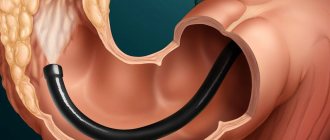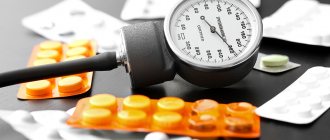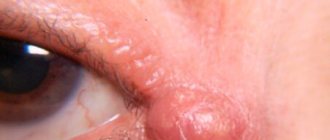At least one big feast in a series of New Year's holidays is already over, which means clients with a burning sensation in the esophagus have already made their way to the nearest pharmacy. Overeating and heavy doses of alcohol almost inevitably lead to problems with the gastrointestinal tract, even for those who do not normally suffer from this. Pharmacy workers who celebrate the holiday are required to dispense “something for heartburn.” How to answer the strangest or trickiest questions from clients about antacids? We offer you the following answer options.
Recommend me something for heartburn that will last longer.
Modern antacid drugs that are not absorbed in the digestive tract, such as aluminum phosphoric acid or aluminum-magnesium drugs, are suitable for you. They bind hydrochloric acid quite quickly - usually within a few minutes after ingestion - and their effect lasts up to several hours. Maximum duration of action
characteristic of drugs containing aluminum hydroxide. They act for 2.5–3 hours [2].
Preventing recurrent heartburn
There are some rules that can help reduce the symptoms of heartburn.
To prevent heartburn, you need to follow simple rules that will help reduce the load on the stomach and reduce unpleasant symptoms:
- Small portions of food 4-5 times a day.
- Reduce consumption of very spicy, salty, fatty foods.
- Avoid carbonated drinks and foods that cause gas (soda, beer, simple carbohydrates)
- Raise the pillow 15-20 cm while sleeping.
- Try not to eat before bed and not to lie down after eating.
- Give up bad habits (alcohol, smoking).
- Reduce excess weight.
- Do not lean forward too much and do not strain, avoid lifting weights of more than 8-10 kg (do not strain your abdominal muscles).
- Remove corsets and tight belts from your wardrobe, wear looser clothes that do not squeeze your stomach.
Give me heartburn medicine. And it would be desirable to also help with bloating - are there any such remedies?
Yes, today there are combination drugs that simultaneously neutralize hydrochloric acid and stop the manifestations of flatulence due to the inclusion of simethicone in the antifoam composition. It reduces the surface tension of gas bubbles in the digestive tract, promoting their rupture. An example of such a drug is a combination of aluminum, magnesium hydroxide and simethicone in the form of a suspension. It simultaneously neutralizes hydrochloric acid, reduces gas formation in the intestines, and also envelops the mucous membrane of the digestive tract, protecting it from the damaging effects of aggressive substances [5].
Heartburn medications
If heartburn does not bother you often, once a week or less, you can take antacids and alginates .
Antacids
This group of drugs neutralizes hydrochloric acid produced by the cells of the gastric mucosa. Reducing acidity in the stomach helps to increase the tone of the lower esophageal sphincter.
Modern combination drugs that additionally have an enveloping and sometimes calming effect include:
- Phosphalugel;
- Almagel A;
- Gastal;
- Maalox;
- Relzer.
The main thing is that these medications do not have rebound syndrome, like regular soda. When using it, the acidity first decreases, and after a few hours it increases again.
Alginates
- Gaviscon;
- Gaviscon Double Action.
Preparations from the alginate group form a gel film on the surface, which protects the mucous membrane from the action of acid and pepsin. Some drugs have a double effect, since they contain an antacid component.
H2-histamine receptor blockers
- Ranitidine;
- Famotidine;
- Nizatidine.
They reduce the production of hydrochloric acid by the parietal cells of the stomach. The advantage of their action is that the secretion associated with food intake is suppressed to a lesser extent, which means the digestive processes will be affected to a lesser extent. At the first symptoms of heartburn, it is possible to take halved doses of H2-histamine receptor blockers. The effect can last up to 12 hours, and there is no need for additional antacid medications.
H2-histamine receptor blockers reduce the production of hydrochloric acid by the parietal cells of the stomach.
Proton pump inhibitors (PPIs)
- Nexium;
- Nolpaza;
- Pariet;
- Omez.
Proton pump inhibitors inhibit the final stage of hydrochloric acid formation in the parietal cells of the stomach. The maximum effect of administration develops on days 5-7 of administration. The secretion of hydrochloric acid is restored on the 2nd day after stopping the intake. With prolonged use of drugs for several years and a severe lack of hydrochloric acid in the stomach, pathogenic flora can develop. Drugs in this group do not have an immediate effect and can only be prescribed by a doctor after diagnosis.
Prokinetics
- Ganaton;
- Motilium;
- Motilak.
If the symptoms of heartburn go along with impaired motor function of the stomach, the organ is sensitive to stretching, prokinetics help accelerate the evacuation of food into the small intestine. The propulsive motility of the stomach increases.
UDCA preparations
- Ursosan.
Sometimes not only the contents of the stomach, but also the contents of the small intestine, such as bile, are thrown into the esophagus. This situation can arise in case of liver diseases, when drugs that reduce acidity in the stomach have already been used, there is no reflux of the acidic part, but there is irritation and heartburn in the esophagus. In this case, ursodeoxychoic acid (UDCA) preparations are recommended. They help the liver restore its function, normalize the formation and flow of bile, and can reduce the symptoms of heartburn. The course of application is from 2 weeks to 6 months.
What is the difference between tablets and suspension from heartburn? Do they act differently?
The mechanism of action of a drug does not depend on the form (tablets, gel, suspension), but on its components. But the pharmacokinetic properties - the speed of onset of the effect, the duration of action - may differ between tablets and suspensions. It is believed that tablet forms maintain the acidity of gastric juice longer at a level of more than 4 ( acidity of gastric juice is considered normal in the range of 1.3–7.5 pH - editor's note.
) than suspensions. When chewable tablets for heartburn are taken correctly, acid-neutralizing components enter the digestive tract evenly, which has a positive effect on the result. At the same time, for heartburn, suspensions can begin to work faster than tablets [3]. In addition, they are optimally distributed over the surface of the mucous membrane, and in the lumen of the esophagus and stomach they form small drops with a large surface area, which enhances their medicinal properties [6].
And yet it cannot be said unequivocally that any form has an advantage. To draw such conclusions, you need to consider the properties of a particular drug.
Causes of heartburn
The most common cause of heartburn is gastroesophageal reflux disease (GERD). It occurs in 83% of patients with this problem. In addition to heartburn, symptoms such as:
- regurgitation, esophageal vomiting, belching;
- salivation;
- pain when swallowing food;
- difficulty passing food;
- hoarseness of voice;
- nasal congestion;
- coughing;
- glossitis;
- interruptions in heart function.
In addition to gastroesophageal reflux disease, heartburn may be closely associated with:
- Peptic ulcer of the stomach and duodenum.
- Stomach cancer.
- Functional dyspepsia (a group of diseases that do not lead to changes in the structure of the digestive organs, but cause disturbances in their functions).
Many medications have the property of reducing the tone of the lower esophageal sphincter, which can lead to reflux of contents into the esophagus or themselves cause inflammation. Hormonal, antihypertensive, and anti-inflammatory drugs may have such side effects. Therefore, you need to read the instructions carefully.
Many medications can cause heartburn.
The cause of heartburn can be increased intra-abdominal pressure and conditions leading to this:
- pregnancy;
- ascites;
- flatulence;
- hepato-splenomegaly;
- constipation;
- chronic obstructive pulmonary disease, etc.
Without treating the underlying disease, taking heartburn medications will not only not help in the future, but will also mask the symptoms of the underlying problem.
Pain due to coronary heart disease can be confused with heartburn.
Conclusion
Self-medication can be practiced for mild, rare symptoms. For this purpose, drugs from the group of antacids and alginates are used, and a single dose of Ranitidine 75 mg is also possible. If heartburn bothers you more than once a week , you need to consult a doctor . Taking medications should not be uncontrolled. Self-administration should not last longer than 7-10 days. Otherwise, you may not notice other serious diseases in time, one of the symptoms of which may be heartburn.
Algorithm and questions
So, what questions should a buyer ask in order to correctly select a heartburn medication at a pharmacy or send it to a therapist on time?
- Are there any “worrying” complaints?
- abdominal pain (of any nature);
nausea, vomiting, obsessive belching;
- temperature increase;
- bloating, delayed gases;
- weakness;
- impurities of blood and/or mucus in the stool, traces of blood on toilet paper;
- black, tarry stool;
- constipation followed by loose stools;
- any sudden changes in bowel habits;
- sudden weight loss.
- Is heartburn new or recurring?
- If heartburn occurs for the first time, then we can recommend absorbable antacids (for example, calcium carbonate + magnesium carbonate) or non-absorbable 1st generation, which will help relieve unpleasant symptoms one-time.
If heartburn occurs not for the first time and the buyer has previously, according to him, already had some gastroenterological diseases, then preference should be given to non-absorbable antacids of the 2nd generation or alginates.
- How often do you experience heartburn?
- If episodes of heartburn occur once a week or less, then such a buyer should be recommended combined non-absorbable antacids of the 2nd generation * as the most effective (aluminum hydroxide + magnesium hydroxide) for use on an “on demand” basis.
If episodes of heartburn occur more often than twice a week, then it is advisable for such a buyer to be advised to undergo a medical examination, since in this case it may be necessary to regularly take other groups of drugs (proton pump inhibitors, prokinetics, H2-histamine receptor blockers), which only a doctor will prescribe .
- Is the patient taking other medications?
- expectorants of reflex action;
antibiotics;
- NSAIDs;
- calcium channel blockers;
- estrogens;
- antispasmodics;
- β-blockers;
- nitrates;
- anticholinergic drugs.
- Is the woman pregnant or not?
- If heartburn is episodic (1-2 times a week or less), we recommend absorbable antacids (calcium carbonate + magnesium carbonate) once to quickly relieve symptoms.
If heartburn is systematic and causes severe discomfort, then preference should be given to alginates, as the safest means during pregnancy.
- Buyer's age?
In the group of elderly patients and children over 12 years of age, the safest use of alginates is to relieve heartburn, since they act quickly and do not have systemic effects. The use of absorbable and aluminum-containing antacids in elderly patients is undesirable due to possible side effects.
- Do you have a history of any inflammatory diseases of the gastrointestinal tract (gastritis, duodenitis, gastric or duodenal ulcers)?
- If the patient has not previously been seen by a gastroenterologist and has not taken antacids, then to start therapy, it is optimal to prescribe second-generation non-absorbable antacids.
If the buyer remembers that he was once registered with a gastroenterologist and underwent treatment, then the choice should be made on alginates, as they are the safest in this situation. Such a buyer should definitely be advised to consult a doctor so as not to miss an exacerbation or progression of the disease.
- Are you allergic to aluminum or magnesium?
An affirmative answer means refusing drugs with these components. Alginates will be a win-win option for such clients, as well as for those who doubt the answer.
Dear pharmacists, remember, if “habitual” heartburn is accompanied by at least one of the symptoms described above, this is a reason to immediately refer the buyer to a doctor. Delay in this case can be life-threatening!
In both cases, it is necessary to draw the buyer’s attention to the fact that long-term uncontrolled use of the drug is not safe and for optimal selection of the drug, it is necessary to consult a doctor.
All of these drugs can cause heartburn. In this case, we can recommend periodic use of antacids “on demand”, absorbable or non-absorbable, 1st generation.
The use of aluminum-containing drugs during pregnancy and lactation is strictly contraindicated!
Heartburn. A bit of gastroenterology
Heartburn occurs when gastric juice enters the esophagus and larynx.
Heartburn occurs when gastric juice backflows from the stomach into the esophagus and larynx. This is not an independent disease, but a symptom of a number of gastrointestinal pathologies.
This condition cannot be dismissed, since heartburn can end on the surgeon’s table when the ulcer is perforated. Symptoms of the pathology:
- burning sensation behind the sternum, which intensifies when changing body position;
- bitter or sour taste in the mouth;
- chronic cough;
- in severe cases, when stool, vomiting with blood, pain behind the sternum or in the epigastrium, cold sweat are added to heartburn, emergency hospitalization is required.
Causes of discomfort:
- systematic overeating;
- abuse of spicy, sour, and overly sweet foods;
- addiction to alcohol and tobacco;
- increased body weight;
- drinking carbonated drinks in large quantities;
- the use of drugs from the NSAID group for the treatment of various diseases;
- clothing that is too tight, pressing on the stomach;
- weakening of the muscles that close the entrance to the stomach;
- lifting weights after eating;
- waiting period for the baby.
In addition, heartburn can be a sign of gastrointestinal diseases - gastritis, enteritis, duodenitis, erosive processes. Therefore, you should initially contact a gastroenterologist and undergo an examination.
Required knowledge
Heartburn is a symptom subjectively perceived as a feeling of burning or warmth of varying intensity and duration, occurring behind the sternum and/or in the epigastric region, spreading upward from the xiphoid process. In the domestic epidemiological study "MEGRE" (2011), it was demonstrated that this symptom is detected in 47.5% of Russians. Heartburn can occur both on an empty stomach and after a heavy meal (after 20–30 minutes), after eating a large amount of sweet foods and hot spices. Smoking, fatty foods, coffee, carbonated drinks, chocolate, tomatoes, onions, garlic, citrus fruits, mint and alcohol can also trigger heartburn. Most often it appears in a horizontal position and during physical activity (lifting weights, bending the body forward), during pregnancy. Also, heartburn can be caused by taking certain medications - these are reflex expectorants, antibiotics, NSAIDs, calcium channel blockers, estrogens, antispasmodics, β-blockers, nitrates, anticholinergic drugs.
Heartburn is often associated with gastroesophageal reflux disease (GERD), which involves inflammatory changes in the lining of the esophagus, but can also occur in healthy people.
Symptoms of GERD:
- belching air or sour;
- lump in the throat;
- feeling of bitterness in the mouth;
- Heartburn is the most common symptom, occurring in 81% of GERD cases.
Despite the apparent “frivolity” of the symptoms of GERD, a long-term uncontrolled course of the disease can lead to complications such as:
- esophageal ulcers;
- bleeding - when blood vessels are damaged due to the formation of an esophageal ulcer;
- strictures (narrowing) of the esophagus;
- dysphagia (difficulty swallowing);
- pharyngeal reflux - a condition when acid from the stomach enters not only the esophagus, but also higher into the pharynx, and from there into the larynx, which is manifested by hoarseness;
- pneumonia and bronchitis - develop when pharyngeal reflux worsens and acid enters the respiratory tract;
- Barrett's esophagus is a precancerous condition of the esophagus;
- esophageal carcinoma.
In this regard, timely consultation of the patient with a doctor for a complete examination and diagnosis is especially important even with minimal manifestations of the disease.
The basis of treatment for GERD is lifestyle changes: normalizing body weight, quitting smoking, drinking alcohol, fatty foods, coffee, chocolate, and carbonated drinks. Food should be taken in small portions, dinner no later than 2-3 hours before bedtime, stress associated with increased intra-abdominal pressure, as well as wearing tight clothing should be avoided. The most commonly used medications are proton pump inhibitors, H2-histamine receptor blockers, prokinetics, antacids and, more recently, alginates.
It is important to note that almost all drugs intended to treat GERD, except antacids and alginates, are prescription drugs and are prescribed only by a doctor!
Diagnostics
One of the key methods for determining the acidity of the stomach is to conduct a urease breath test to identify the bacterium Helicobacter pylori. Also, PCR and ELISA studies are performed to identify antibodies to this microorganism. Other mandatory research methods for suspected gastritis with high acidity include:
- Endoscopic examination of the stomach (gastroscopy). Using this method, the condition of the stomach, esophagus and duodenum is assessed. If necessary, during the examination, fragments of the mucous membrane are taken (biopsy).
- Intragastric pH-metry. To conduct the study, a pH-metric transnasal probe is used, which is connected to an autonomous recording unit. If the pH of the gastric contents is less than 1.5 units, then the diagnosis of hyperacid gastritis is confirmed.
An ultrasound examination of the abdominal organs may be prescribed as an auxiliary examination method.
Heartburn in pregnant women. How to help?
Heartburn in pregnant women is common.
Women expecting a baby are a separate category of patients with heartburn. This condition is due to the fact that the growing uterus puts pressure on all organs and systems.
The problem is aggravated by the fact that pregnant women are not recommended to take many medications. How to help an expectant mother cope with a burning sensation in the esophagus? There are a number of rules that should be followed:
- away from all potentially dangerous products, even if you really want to;
- eat little and often;
- do not take a horizontal position after eating.
What home remedies are allowed for a pregnant woman? The list is small, but all recommended methods have worked well:
- Warm milk is good for both the baby and the expectant mother, and will relieve heartburn.
- Carrot juice and grapefruit juice. Take citrus fruits with caution so as not to provoke an allergy attack.
- Nuts – several kernels each, as this is a fatty and high-calorie food.
- Vegetable oil - 1 tablespoon during an attack. And the heartburn will go away, and the problem of constipation during pregnancy will be solved.
If heartburn is tormented and home methods do not help, then it is better for a woman in the position to consult a doctor.
Common Causes of Stomach Problems
To choose an effective and efficient drug for the stomach, you need to determine the origin of the problem. It can be:
- chronic pathologies;
- acute conditions that cannot be managed without medical care;
- minor temporary disturbances.
Taking a more detailed look at the problem, five main reasons can be identified.
Poor nutrition
Eating products of questionable quality, fast food and an unbalanced diet can provoke periodic spasms. When you overeat, internal pressure builds up, causing heartburn. Regular consumption of legumes leads to gas formation. Foods high in toxins (melons, fruits) can cause poisoning of the body of varying severity.
Impact of stress
Stress factors can provoke acute and unexpected cramps in the stomach. The cause is extreme situations, not chronic and prolonged depression. In such situations, it is recommended to take herbal soothing tea, an antispasmodic.
Antibiotic therapy
Any medications taken for a long period of time have a positive and at the same time negative effect on a person. Even if therapy is not carried out in relation to the gastrointestinal tract, it is he who primarily suffers from side effects. Oral antibiotics enter the stomach, where they are divided into individual components that are distributed according to their intended purpose.
As a result, the microflora of the digestive system is disrupted, which causes unpleasant sensations. The most pronounced side effects are with cephalosporin and tetracycline. Even with a shortened course of treatment they:
- destroy beneficial microflora;
- provoke pH imbalance.
Probiotics can help in such cases. You can also normalize stomach acidity by regularly consuming fermented milk products.
Peptic ulcer
An intestinal or stomach ulcer occurs for reasons such as:
- chronic stress;
- bacterial infection;
- entry into the gastrointestinal tract of aggressive chemical components.
In a chronic condition, pain is almost imperceptible. It progresses during periods of exacerbation after consuming sour or spicy foods, alcohol, and various spices. In critical cases, acute pain may be accompanied by internal bleeding.
Gastritis
This is an inflammatory process that affects the gastric mucosa. The disease can be chronic with regular pain or acute with sudden attacks that quickly appear and disappear. Treatment of gastritis is recommended to begin at the earliest stages.
Summary
Let us remind you once again that the pharmacist’s task is not only to select the most effective and safe drug (which our article will help with), but also to motivate the buyer to see a doctor for a detailed examination.
Sources
- Vakil N., van Zanten SV, Kahrilas P., Dent J., Jones R; Global Consensus Group. The Montreal definition and classification of gastroesophageal reflux disease: a global evidence-based consensus. Am J Gastroenterol. 2006 Aug.
- Maev I.V., Samsonov A.A., Bely P.A., Lebedeva E.G. GERD is the leader of acid-dependent pathology of the gastrointestinal tract // Appendix Consilium Medicum. Gastroenterology. No. 1. 2012. pp. 18–24.
- Minushkin O. N., Elizavetina G. A. Antacids in modern therapy of acid-related diseases // Gastroenterology of St. Petersburg. — 2010. — No. 2–3
- Yanova O. Modern understanding of the pathophysiological aspects of GERD and approaches to its pharmacotherapy // Doctor. 2013. No. 3.
- Bordin D.S., Masharova A.A., Kozhurina T.S. Treatment of gastroesophageal reflux disease with alginates // Treating Doctor. 2008.
- Lazebnik L. B., Masharova A. A., Bordin D. S. et al. Results of the multicenter study “Epidemiology of Gastroesophageal Reflux Disease in Russia” (“MEGRE”). Therapeutic archive. 2011.
- Isakov V. A. Analysis of the prevalence of heartburn: a national epidemiological study of the adult urban population (ARIADNA). Experimental clinical gastroenterology. 20089. Global Consensus Group. The Montreal definition and classification of gastroesophageal reflux disease. 2006.











